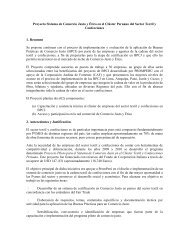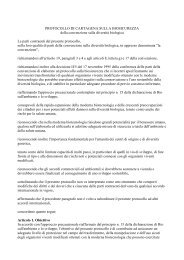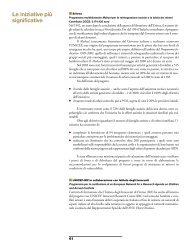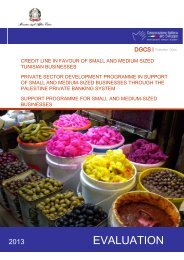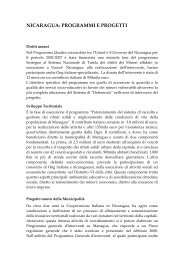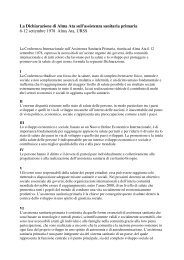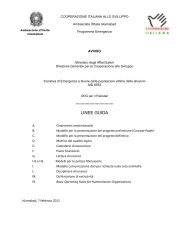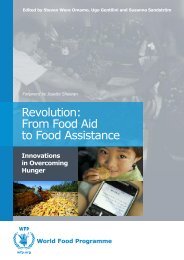here - Cooperazione Italiana allo Sviluppo
here - Cooperazione Italiana allo Sviluppo
here - Cooperazione Italiana allo Sviluppo
Create successful ePaper yourself
Turn your PDF publications into a flip-book with our unique Google optimized e-Paper software.
According to some the real true contract assumes an importance in particularfor the women and the family further away from the animist beliefs: one couldthink that if the threat connected to the wodoo rite is sufficient in most cases, inothers the bond of respect for the pledges undertaken are manifested in the form ofa formal contract, which one could say is very tight, because from this the honourof the family depends.From the testimony of a cultural mediator it emerges that similar formulas,substitutive or integrative of wodoo, were already present at the beginning of the‘90s, at the birth of the phenomenon of the traffic in Nigerian girls for prostitutionin Italy. In those years the family was called to guarantee the maintenance of thepact through the assumption of a sort of mortgage on one of the properties,generally on the owned house.“It is something that started in 1998. Before, 1990, 1991, they took themeasurements of the house of your parents. When the daughter finished paying, theparents went to the family of the pimps to take back the planimetry of the house, ifhowever the girl did not pay, they sold the house for the debt. But in these yearsthey make a contract which costs 200 Euros, which for us is a lot of money, t<strong>here</strong>are not many people who can pay that sum. The contract is between the girl andthe traffickers, if t<strong>here</strong> are parents who are in agreement it is between the parentsand the traffickers” (Interview Victim No.8).But the present type of contract foresees payment by the girl or her family evenof that which can be defined as “legal fees or registration” of the contract.“Now they ask for money to register, to make a contract” (Interview VictimNo.8).“I was t<strong>here</strong> (…) a friend of hers with a daughter arrived, they wanted to pay30,000 of our money (300 dollars) because before leaving they ask for this moneyto register, because they go to a lawyer to say «you must pay, you must notdenounce me», to also go and do this wodoo that they do before departure”(Interview Victim No.5).The contractual bonds of a moral pledge, of a ritual magic type, or of a legalnature, have a strong hold on the conscience of the same victims. Nearly always,despite being aware of the injustice of the situation in which they find themselvesliving, they keep faith with the pledge undertaken and only after havingextinguished the debt do they eventually decide to lodge a complaint.In this case, some operators of the police report having received a complaint bywomen who have finished paying their debt. In that moment they were finallyrelaxed on the psychological and moral level and at the same time realised that,having finished to pay the debt, the complaint was the only way to get out of theillegal context and the irregular situation.Not necessarily, as we will see, does this imply that one is faced with false orpretentious complaints, but certainly they are complaints that are difficult to dealwith, as they refer in many cases to facts and situations going back a long time.Finally, it is useful to mention <strong>here</strong> that the debt is not the only financial pledgeto which the victims are subjected to: once in Italy, as we will see, they are held to





